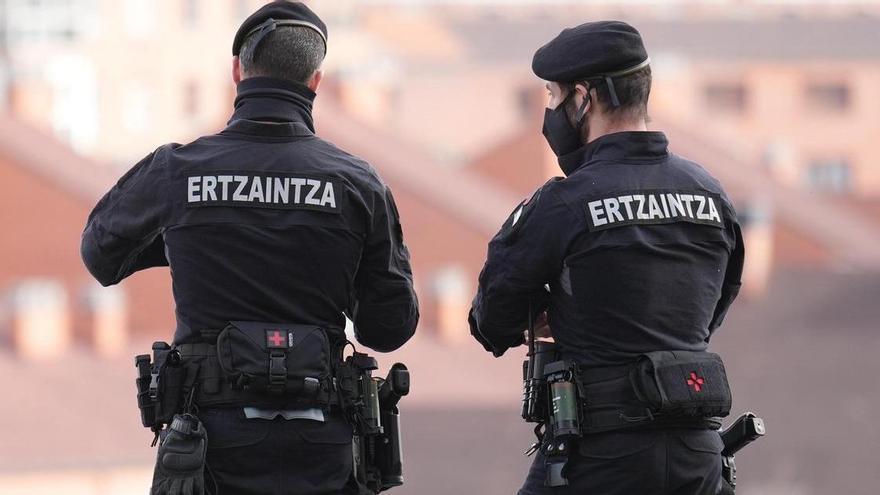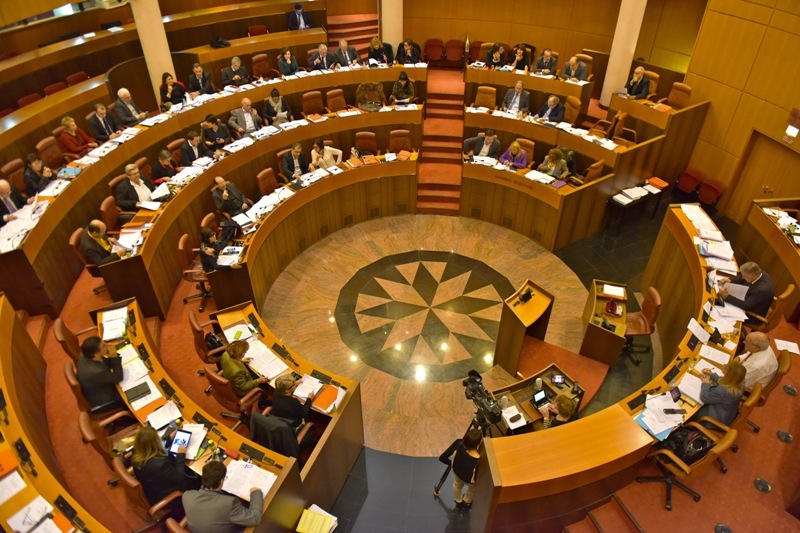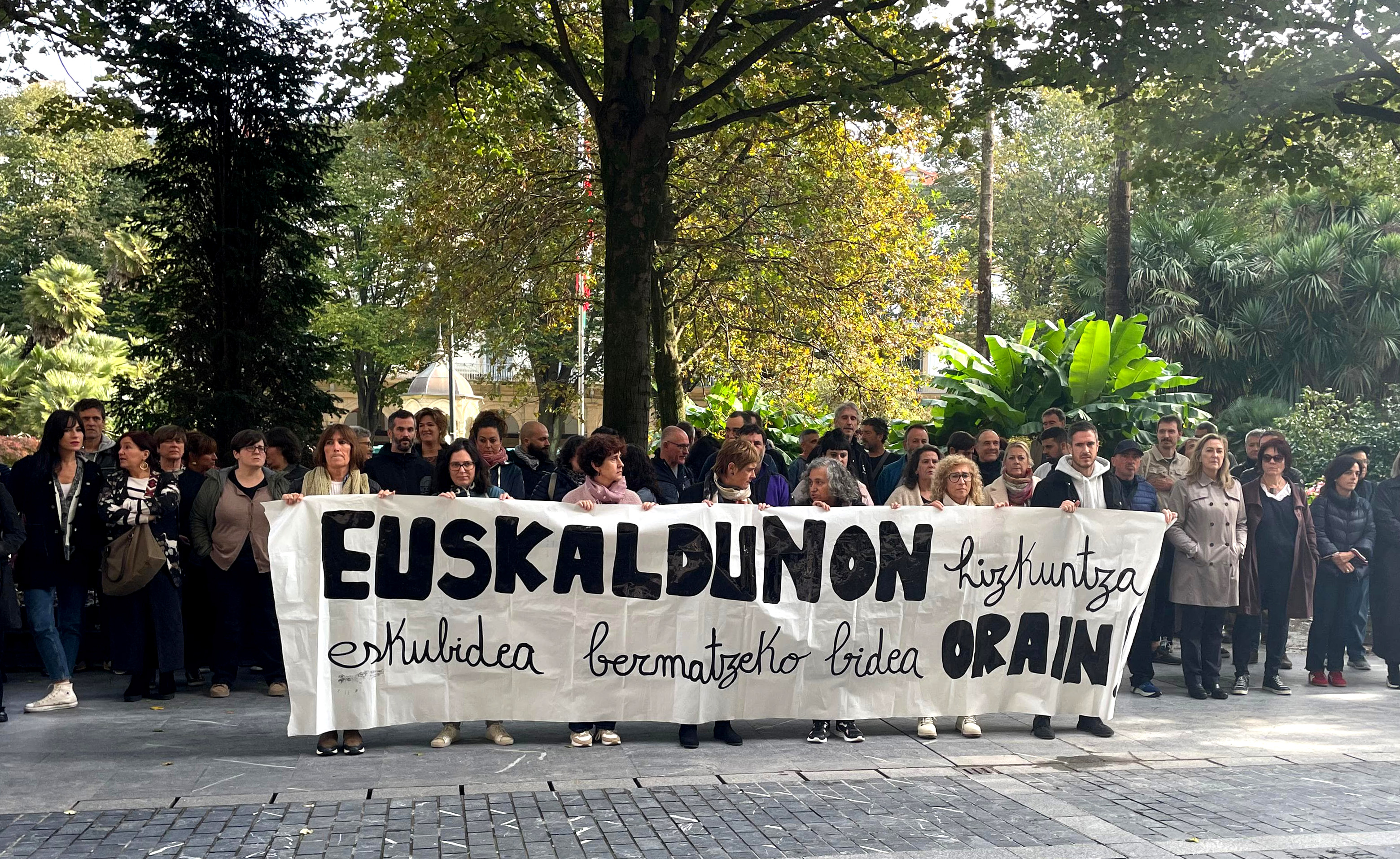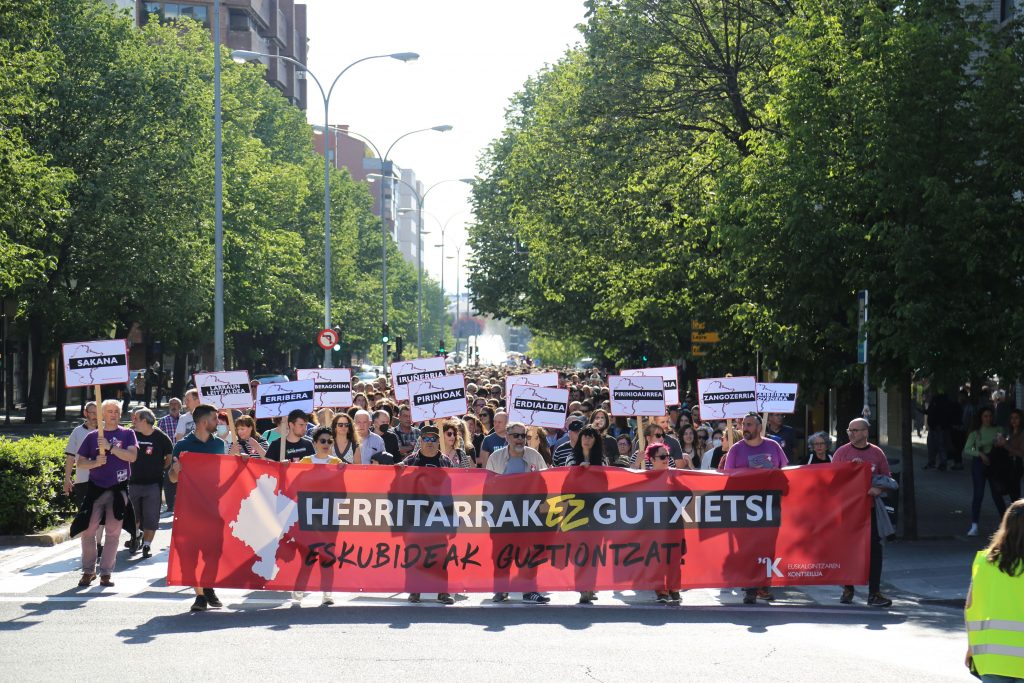Why don't agents speak to us in Basque?
- It is not new that municipal agents do not respect the linguistic rights of Euskaldunes. However, in recent months, and especially in the municipalities of Euskaldunes, the public has shown their discomfort because the workers who are replacing not only do not know Euskera, but have shown an aggressive attitude. What's going on? To answer the question, we have talked about municipal competence, the Basque Law, the Police Law and the police model.
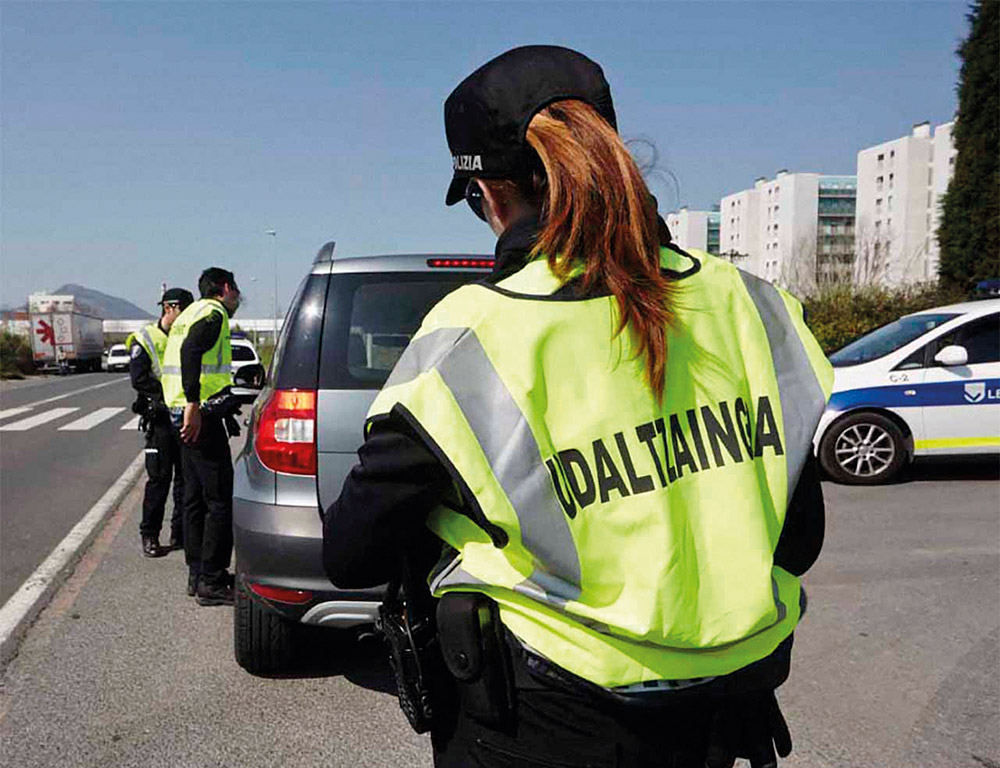
Not long ago, CCOO has appealed to the Basque Government because it has demanded the knowledge of the Basque Country at level B2 in the selection criteria for the joint working stock of potential agents. To some extent it is surprising that the trade union has appealed because two other similar calls had already been made and CCOO did not go to the courts or anyone else. In the last three calls level B2 has been requested for all the people who want to be local policemen, and yet the municipalities are not able to meet their demand; the job market is emptied at some times of the year and, therefore, they are missed by the Municipal Police, and those who are welcomed do not always meet the linguistic profile required by the municipality. For example, in summer the coastal towns ask for more municipal police and do not always get trained staff to speak in Basque. In other words, the demand of agents with a linguistic profile B2 is higher than the supply.
On the other hand, we have talked to Ekaitz Oianguren of ELA and Jon Ander Altube of LAB about the CCOO resource, and neither one nor the other share the decision of CCOO. The municipalities are not obliged to go to this job exchange. Each City Hall has competence to have its own work bag.
Oianguren and Altube do not believe that the CCOO resource has a long history. However, they do not want to put too much force on the union’s position, what they want to emphasise is that the linguistic rights of citizens are not guaranteed, because the public workers who know Basque are not guaranteed, and both – trade unions, courts or political decisions – take advantage of the loopholes to take backward steps in the normalisation of Basque.
How not to let go
The representatives of the two trade unions stress that this is a political issue. Beyond this statement, why are local Basque police officers not guaranteed in the Basque municipalities? What loopholes are left by the law and how can these escapes be closed?
The interlocutors have explained the legal landscape, describing a less simple spider web beyond a simple law.
On the one hand, the Municipal Police Officers are, above all, municipal personnel and it is the municipalities that have competence over them. The City Hall may determine the profiles of each job, including the language. The City Hall will determine whether B2, C1 or none are required for this type of seat. We have said that the local public body has competence, but the two trade unionists have made it clear to us that the Basque Law determines the linguistic profiles of the jobs of the municipalities. The proportion is calculated and the number of places that should have a linguistic profile, including local police, is calculated based on the number of vasco-speakers in the municipality. That is, the linguistic profiles of the jobs depend on the sociolinguistic situation of the municipality. In other words, the application of profile B2 to all municipal police officers in a municipality with little knowledge of the Basque Country would violate the law and, on the contrary, a lack of respect for the proportion of knowledge of the Basque municipality and the presence of Euskaldunes agents. In the opinion of Oianguren and Altube, the Basque Law should not establish these conditions, and all Municipal Police officers should have at least profile B2. "If not," says Oianguren, "the small Euskaldunes speak of respect for linguistic rights and acknowledge that in Bilbao or Vitoria we will have to do so in Spanish with the Municipal Police".
The two trade unionists have made a more in-depth reflection on the thread of language. They raise the need to discuss the model of the Municipal Guard. Both ELA and LAB want to wager on a model of a close agent, knowledgeable of the people and at the service of citizenship. Examples include calls for provisional places: The citizen of Balmaseda can be an agent of the Municipal Police of Tolosa, without knowing the locality. The Basque Country is one of the axes of the model that they want to promote: "If we want to drive the community model, we've started very badly between the citizen and the municipal police if you can't use Euskera," says Altube. Oianguren wished to emphasise municipal competence: "If we want to guarantee the knowledge of Euskera in our local policemen, the municipalities have the tool so that, once the temporality is over, they leave the joint OPE and perform their own oppositions that guarantee the knowledge of Euskera".
We are talking about municipal competence and the Basque Law. Oianguren and Altube have also talked about the Police Act. This law includes the Ertzainas and the local police. Thus, it does not contain any linguistic profile. The law says, for example, that to be a municipal police officer it is mandatory to have a baccalaureate, and that they cannot be more than 38 years old. In these requirements, the general law requires that the two unions relate the linguistic profile B2 and that each city council then analyse whether it needs a higher profile.
To the extent that there is no legal shield, as we said at the beginning of the article, a union, the courts or political decisions will find loopholes for local policemen to have shorter language profiles than they are now, thereby blocking the linguistic rights of citizens.
Uema's requirement: C1
Uema says that many of the new agents that reach the municipalities of Euskaldunes have level B2 and considers that this profile does not guarantee the ability to communicate in Basque with the citizens. The Commonwealth of Basque Municipalities says that sometimes they do not even have the capacity to understand the Basque country, and adds that those who have an attitude against the Basque country have also reached the municipalities of Euskaldunes. Iraitz Lazkano, President of Uema, determines the consequence of this situation: “The Basques will always be second-class citizens.” Uema's demand is that all workers from the municipalities of Euskaldunes with which citizenship is related have level C1, as well as local police officers.
Our two interlocutors do not believe that CCOO’s recourse is going to prosper, but one knows, the legal powers are in a situation of aggression in recent times and we can move forward as in the normalization of the Basque country.
The Council of Euskalgintza is warning of the linguistic emergency we have been experiencing in recent weeks. Several years have passed since the beginning of describing the situation of the process of revitalization of the Basque country at the crossing, at the roundabout, at... [+]
Korsikako legebiltzarkideek ezin dute Korsikako Asanblean korsikeraz hitz egin, Bastiako Auzitegiaren 2023ko epai baten arabera. Ebazpen horri helegitea jarri zion Asanbleak, baina debekua berretsi du orain auzitegi berak. Epaiak tokiko beste hizkuntzei eragiten diela ohartarazi... [+]













